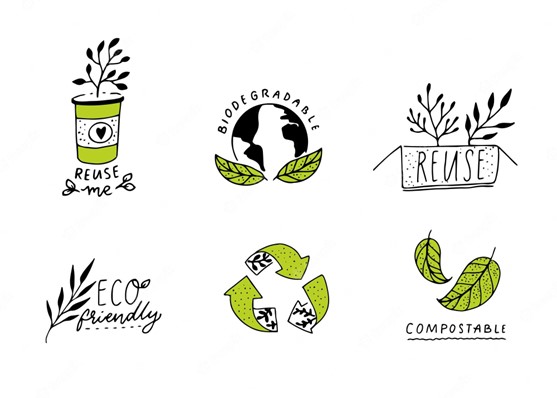Defining Biodegradable Products
Biodegradable products break down into natural elements over time, primarily through the action of microorganisms, such as bacteria and fungi. These products are made from materials that are derived from renewable resources, such as corn starch, vegetable oil, and paper. Biodegradable products can be found in various applications, from food packaging to disposable cutlery and clothing.
Several factors, including temperature, moisture, and oxygen, influence biodegradation. In ideal conditions, biodegradable products can break down within a few months to several years. However, in less favourable conditions, such as landfills or bodies of water, biodegradable products may only partially break down and can still contribute to pollution.
Despite their eco-friendly image, not all biodegradable products are created equal. Some products may only partially break down, leaving behind microplastics that can harm the environment. Additionally, a standardized definition of what constitutes a biodegradable product currently needs to be standardized, leading to consumers' confusion and potential manufacturers' greenwashing.
Defining Compostable Products
Compostable products, conversely, are designed to break down into nutrient-rich soil, a process known as composting. Composting is a natural process that occurs when organic matter, such as food scraps and yard waste, decomposes into a rich soil-like material that can be used to nourish plants.
Compostable products are made from biodegradable materials, such as corn starch and sugarcane. Still, they are also designed to break down in specific conditions, such as in a composting facility or in a backyard compost bin. These conditions typically involve a specific balance of temperature, moisture, and oxygen, which allows the organic material to break down into nutrient-rich soil that can be used for gardening.
Unlike biodegradable products, compostable products are held to specific standards, such as the ASTM D6400 or the European EN 13432 standard, ensuring that the product will break down into compost within a certain timeframe under specific conditions. Additionally, compostable products do not leave behind microplastics, making them a more sustainable alternative to traditional plastics.
The Environmental Impact of Traditional Plastics
Before we can fully understand the environmental impact of biodegradable and compostable products, we must first examine the impact of traditional plastics. Plastics have become ubiquitous in our modern world, with an estimated 9.2 billion tons of plastic produced since the 1950s. Unfortunately, a significant portion of this plastic ends up in landfills or polluting our oceans, where it can harm wildlife and disrupt ecosystems.
Traditional plastics are made from non-renewable resources, such as fossil fuels, and can take hundreds of years to break down. Even when they break down, they often leave behind microplastics that can persist in the environment even longer. Additionally, the production of plastics is a major contributor to greenhouse gas emissions and other forms of pollution.
The Environmental Impact of Biodegradable Products
While biodegradable products may seem more sustainable than traditional plastics, their environmental impact can sometimes be more apparent. Biodegradable products can break down into natural elements over time, but they may still leave behind microplastics that can harm the environment.
In addition, the production of biodegradable products can require significant amounts of energy and resources. For example, producing biodegradable plastics can require more water and energy than traditional plastics, which can offset potential environmental benefits.
Furthermore, the disposal of biodegradable products can be challenging. While they can break down in the right conditions, they may only partially break down in a landfill or ocean, where they can still contribute to pollution. Additionally, if biodegradable products are not disposed of properly, such as in a composting facility or a backyard compost bin, they may not break down at all.
The Environmental Impact of Compostable Products
Compostable products have a more positive environmental impact than biodegradable products, as they are designed to break down into nutrient-rich soil that can be used to nourish plants. Composting also helps divert organic waste from landfills, reducing methane emissions and other forms of pollution.
Compostable products are also made from renewable resources, such as cornstarch and sugarcane, which can help reduce our reliance on non-renewable resources. Additionally, the production of compostable products typically requires less energy and resources than the production of traditional plastics.
However, compostable products do have some limitations. They require specific conditions to break down, such as a specific balance of temperature, moisture, and oxygen, which may not be present in every environment. Additionally, if compostable products are not disposed of properly, such as in a composting facility or a backyard compost bin, they may not break down at all.
Biodegradable vs Compostable: Which is Better for the Environment?
When it comes to choosing between biodegradable and compostable products, there is no easy answer. Both options have benefits and limitations, and the best choice depends on the specific product and its intended use.
In general, compostable products are the more sustainable option, as they are designed to break down into nutrient-rich soil that can be used to nourish plants. However, they require specific conditions to break down, which may only be present in some environments. Additionally, compostable products may only be suitable for some applications, such as packaging for products with a long shelf life.
On the other hand, biodegradable products may be a better option for specific applications, such as disposable cutlery or straws. However, they may not fully break down and can leave behind microplastics that can harm the environment. Check a list of biodegradable restaurant items on the Genesis website
Ultimately, considering the product's intended use and disposal method is the key to making an informed choice. Compostable products may be the best choice if composting facilities or backyard compost bins are available. If composting is not an option, biodegradable products may be a better alternative to traditional plastics.
Misconceptions About Biodegradable and Compostable Products
Several misconceptions about biodegradable and compostable products can lead to confusion and misinformation. One common misconception is that all biodegradable products are compostable, which is invalid. Biodegradability and compostability are not interchangeable terms, and not all biodegradable products are suitable for composting.
Another misconception is that biodegradable and compostable products will break down quickly in any environment. In reality, both products require specific conditions to break down and may not fully break down in a landfill or in the ocean.
Additionally, some manufacturers may use misleading advertising language or make false claims about the environmental benefits of their products, a practice known as greenwashing. To ensure that a product is genuinely compostable, it is essential to do your research and look for third-party certifications, such as the ASTM D6400 or the European EN 13432 standard.
How to Properly Dispose of Biodegradable and Compostable Products
Proper disposal of biodegradable and compostable products is essential to ensure that they break down as intended and do not contribute to pollution. Compostable products should be disposed of in a composting facility or a backyard compost bin, where they can break down into nutrient-rich soil.
Biodegradable products, on the other hand, may not be suitable for composting and should be disposed of in accordance with local regulations. In some cases, biodegradable products may be able to break down in a landfill or in the ocean, but this is not always guaranteed.
It is important to follow proper disposal guidelines for biodegradable and compostable products to ensure they have the least possible environmental impact.
Examples of Biodegradable and Compostable Products
There are a wide range of biodegradable and compostable products available on the market today, from food packaging to disposable cutlery and even clothing.
Compostable products include items such as food waste bags, coffee cups, and utensils made from plant-based materials. Biodegradable products include items such as straws, disposable cutlery, and bags made from biodegradable plastics.
It is important to note that not all products marketed as biodegradable or compostable are created equal. It is important to look for third-party certifications, such as the ASTM D6400 or the European EN 13432 standard, to ensure that a product is truly compostable or biodegradable.
Conclusion: Making Informed Choices for a Sustainable Future
In conclusion, the choice between biodegradable and compostable products is sometimes unclear. Both options have benefits and limitations, and the best choice depends on the specific product and its intended use.
When choosing, it is crucial to consider the product's intended use and disposal method. Compostable products are the more sustainable option, as they are designed to break down into nutrient-rich soil that can be used to nourish plants. Biodegradable products may be a better alternative to traditional plastics in specific applications, but they may not fully break down and can leave behind microplastics that can harm the environment.
Ultimately, the key to making an informed choice is to research and look for third-party certifications, such as the ASTM D6400 or the European EN 13432 standard, to ensure that a product is genuinely compostable or biodegradable. By making informed choices, we can work towards a more sustainable future for ourselves and future generations.
Welcome to Genesis Supplies, your one-stop shop for high-quality, eco-friendly, and biodegradable cleaning products. We are proud to be a renowned distributor in North America, working with a variety of environmentally conscious cleaning product companies in both the US and Canada. Whether you're in need of biodegradable supplies for your restaurant, hotel, or office supplies, we've got you covered. Rest assured that our extensive selection will cater to your every need. Come and visit us today to get your hands on the best green cleaning supplies!



